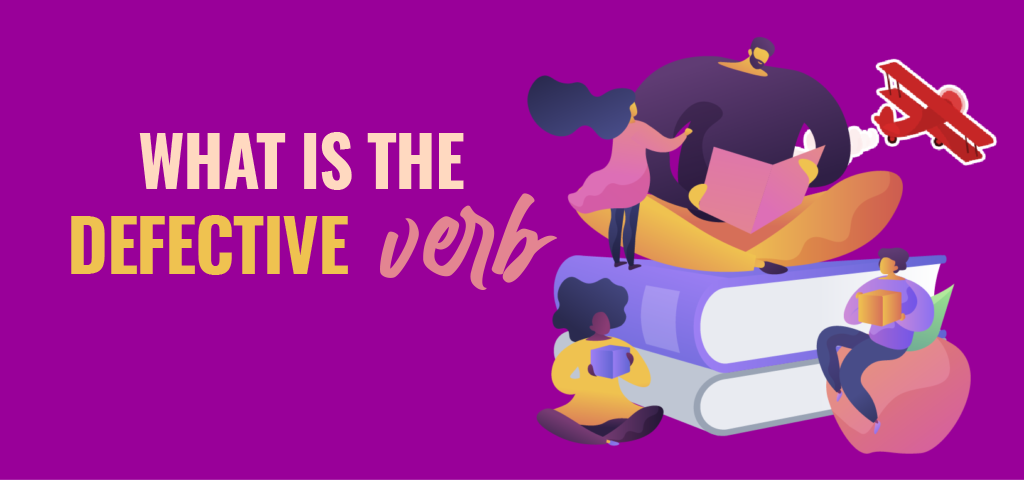What is the Defective verb?

They are English verbs that do not have all the necessary forms to create sentences in different tenses. For example, the verb can is such a verb because although it has the past simple form could, it does not have the past participle form that is used to create perfect tenses.
ÍNDICE DE CONTENIDOS
If you want to create sentences in the perfect tense, you should use “be” capable of forming, which has all possible forms. If you want to create a sentence at any other time, you must use its equivalent: have to.
Defective verbs, also called “special finites” or ” anomalous finites” are a class of special, anomalous verbs that have special characteristics that give them a certain particularity. Remember these tips to apply them in any official exam!
These characteristics are essentially these
- They do not use the -S in the 3-person singular of the present tense like the rest of the verbs.
- They do not use the auxiliary ” do, does, did “ to form questions and/or negatives.
- They do not use the preposition ” to ” in their enunciation.
Main defective and auxiliary verbs
Be, have, do, shall, should, will, would, can, could, may, might, had better, must, have to, ought to, used to, need, needn´t, dare, would rather, etc.
The verb “can”
Affirmative:
- I can, you can, he can, we can, etc.
Yo puedo, tu puedes, el puede, nosotros podemos, etc.
Negative:
- I cannot, he cannot, etc (can´t).
No puedo, el no puede, etc (no puedo).
Interrogative:
- Can I?, Can you?, Can she?, etc.
¿Puedo?, ¿tú ?, ¿ella ?, etc.
This verb means “power” with three nuances and exceptionally “knowing.” These nuances are:
- Permission
Can I borrow your book?
¿Puedo tomar prestado tu libro?
- Possibility
(You can ski in the hills) porque (there is snow).
(Puedes esquiar en las colinas) porque (hay nieve)
- Ability
Peter can write very quickly.
Peter sabe escribir muy rápido.
Could / kud /: is the word that expresses the past tense of this verb and translates
- Could / podía (imperfect).
- Could / podría (coditional).
- Could / pude (indefinite).
As you can see, this verb only has two forms (can, could) with which we cannot conjugate it with the other tenses (past perfect, pluperfect, future, etc). To solve this problem we will use the expression “To be able to” which is a synonymous expression and is conjugate. So “I have been able to” will be the past perfect. “I had been able to” would be the pluperfect and “I shall be able to”, the future.
The verb “may”, “might”
This verb is exactly the same as can / could. Their difference is semantics: May/might is the power of probability, and possibility. (It may rain tomorrow, there are some clouds).
The verb “must”
This verb expresses the positive obligation: to have to.
Affirmative:
- It may rain tomorrow, there are some clouds.
Puede que llueva mañana, hay algunas nubes.
Negative:
I must not (mustn´t).
No debo (no debo, which is not an obligation but a prohibition (very important).
Interrogative:
- Must I?, Must you? Must he? etc.
¿Debo yo? ¿debes tú?
This verb only has a present form, so in order to conjugate it, we must use the verb HAVE TO, which means practically the same thing and is conjugated as an ordinary verb.
I have to go, I don´t have to go, I didn´t have to go, I have had to go, I shall have to go.
The semantic difference between “must” and “have to” is that in the latter the obligation is imposed on you from outside, while with “must” the obligation is imposed on yourself.
Other defective verbs
- Should/ought to / debería.
- Used to / solía.
- Dare / atreverse.
Conclusion
- To express ability power: can / could.
- Express power of probability/possibility: may / might.
- To express obligation: must / have to
- Express prohibition: mustn´t.
- To express the absence of obligation: needn´t.


